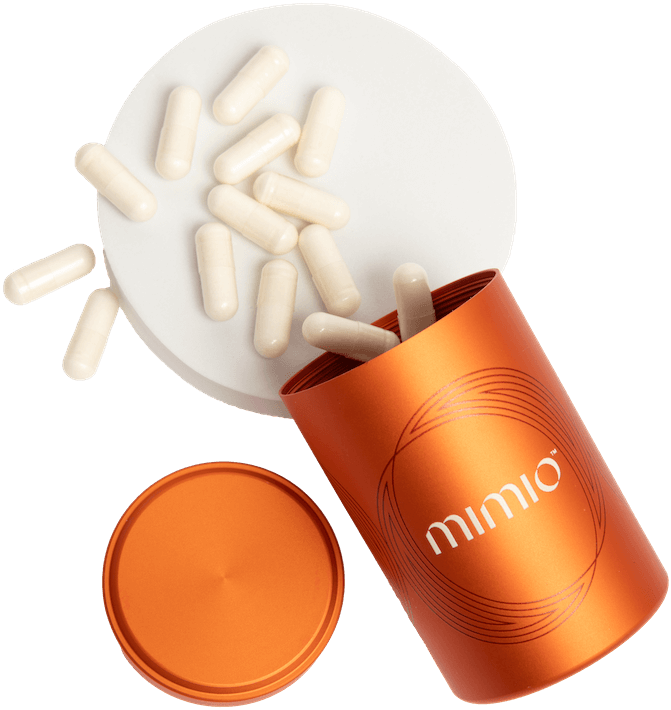Intermittent fasting has gained significant popularity as a powerful tool for weight management, improved metabolism, and overall health enhancement. However, one question that frequently arises is: how many calories break intermittent fasting? Let's dive into the nitty-gritty of fasting, calories, and learn how to maintain the integrity of your fast.
How Many Calories Break Intermittent Fasting?
Understanding Intermittent Fasting
Intermittent fasting (IF) is an eating pattern that cycles between periods of fasting (not eating) and eating. It's less about WHAT you eat and more about WHEN you eat or don’t eat. The most common methods include:
-
16/8 method: Fast for 16 hours and eat during an 8-hour window
-
5:2 method: Eat normally for five days and restrict calories to 500-600 on two non-consecutive days
-
24-hour fast: Fast for a full 24 hours once or twice a week
The primary goal of intermittent fasting is to allow the body to enter a state of ketosis, during which it burns fat for energy due to a lack of glucose from food. This process offers numerous health benefits, including weight loss, improved insulin sensitivity, and enhanced metabolic health.
The Caloric Threshold
One of the most debated topics in intermittent fasting is whether consuming a small number of calories can still be considered fasting. While traditional fasting means consuming zero calories over a specified time period, some flexibility can be applied depending on your goals.
Strict Fasting: 0 Calories
If you aim for the purest form of fasting to maximize autophagy and fat burning, consuming any calories would technically break the fast. Autophagy (the body's natural process of cleaning out damaged cells and regenerating new ones), is optimally triggered in a zero-calorie state.
Modified Fasting: Up to 50 Calories
For those who find zero-calorie fasting too challenging, some studies suggest that consuming fewer than 50 calories may not have a significant negative impact on the fasting state. This can include black coffee, tea, or a small amount of bone broth.¹
Loose Fasting: Up to 200 Calories
A more lenient approach allows for up to 200 calories, particularly in the form of beverages like coffee with a splash of milk or bulletproof coffee (coffee with butter or coconut oil). This method may still offer some benefits of fasting, such as weight management and improved blood sugar control, though it might not fully engage autophagy.
The Science Behind Fasting and Calories
The body's response to caloric intake during fasting can vary. Here are some key factors to consider:
- Insulin Response: Consuming calories, particularly from carbohydrates, can spike insulin levels, signaling the body to exit the fasting state and start storing fat instead of burning it.²
- Metabolic Benefits: Small amounts of calories from fat (e.g., MCT oil in coffee) may not trigger a significant insulin response and can provide energy while maintaining some fasting benefits.³
- Hunger Management: For many, the ability to consume a minimal number of calories can make fasting more sustainable and prevent overeating during eating windows.⁴
Practical and Helpful Tips to Maintain Your Fast
Maintaining a successful intermittent fasting regimen requires understanding how different foods and drinks can affect your fasting state. Here are some tips to help you stay on track:
- Stick to Zero-Calorie Beverages: Water, black coffee, and herbal teas are your best friends during fasting periods. They keep you hydrated without breaking your fast
- Be Cautious of Artificial Sweeteners: While calorie-free, some sweeteners can trigger insulin responses in certain individuals
- Opt for Fat-Based Additives: If you must consume calories, choose fat-based options like a teaspoon of coconut oil, which is less likely to spike insulin levels compared to carbs or protein
- Listen to Your Body: Fasting should be a sustainable practice. If consuming a small number of calories helps you stick with intermittent fasting in the long term, it's better than quitting altogether
Common Pitfalls and How to Avoid Them
- Overestimating Caloric Tolerance: It’s easy to underestimate the calorie content of certain foods and drinks. Always measure and track what you consume
- Misleading "Fasting-Friendly" Products: Be wary of products marketed as fasting-friendly. They may contain hidden sugars or calories
- Ignoring Hunger Signals: While intermittent fasting can suppress appetite, chronic hunger might indicate that you need to adjust your fasting approach or dietary intake
Conclusion
The question of "how many calories break intermittent fasting?" largely depends on each individual's goals and the type of fasting being practiced. Strict fasters should aim for zero calories, while some individuals might find a small caloric intake (up to 50-200 calories) helps maintain their fasting routine without significantly compromising benefits.
Ultimately, the key to successful intermittent fasting is finding a balance that works for your lifestyle and health goals. Whether you choose strict, modified, or loose fasting, the most important aspect is consistency and listening to your body's needs.
For more about maintaining your health during fasting, check out Mimio Biomimetic Cell Care.
References
¹ Anton, S. D., Moehl, K., Donahoo, W. T., Marosi, K., Lee, S. A., Mainous, A. G., Leeuwenburgh, C., & Mattson, M. P. (2018). Flipping the metabolic switch: Understanding and applying the health benefits of fasting. Obesity, 26(2), 254-268.
² Boden, G., & Shulman, G. I. (2002). Free fatty acids in obesity and type 2 diabetes: defining their role in the development of insulin resistance and β-cell dysfunction. European Journal of Clinical Investigation, 32, 14-23.
³ Volek, J. S., Phinney, S. D., Forsythe, C. E., Quann, E. E., Wood, R. J., Puglisi, M. J., ... & Fernandez, M. L. (2009). Carbohydrate restriction has a more favorable impact on the metabolic syndrome than a low fat diet. Lipids, 44(4), 297-309.
⁴ Longo, V. D., & Panda, S. (2016). Fasting, circadian rhythms, and time-restricted feeding in healthy lifespan. Cell Metabolism, 23(6), 1048-1059.



